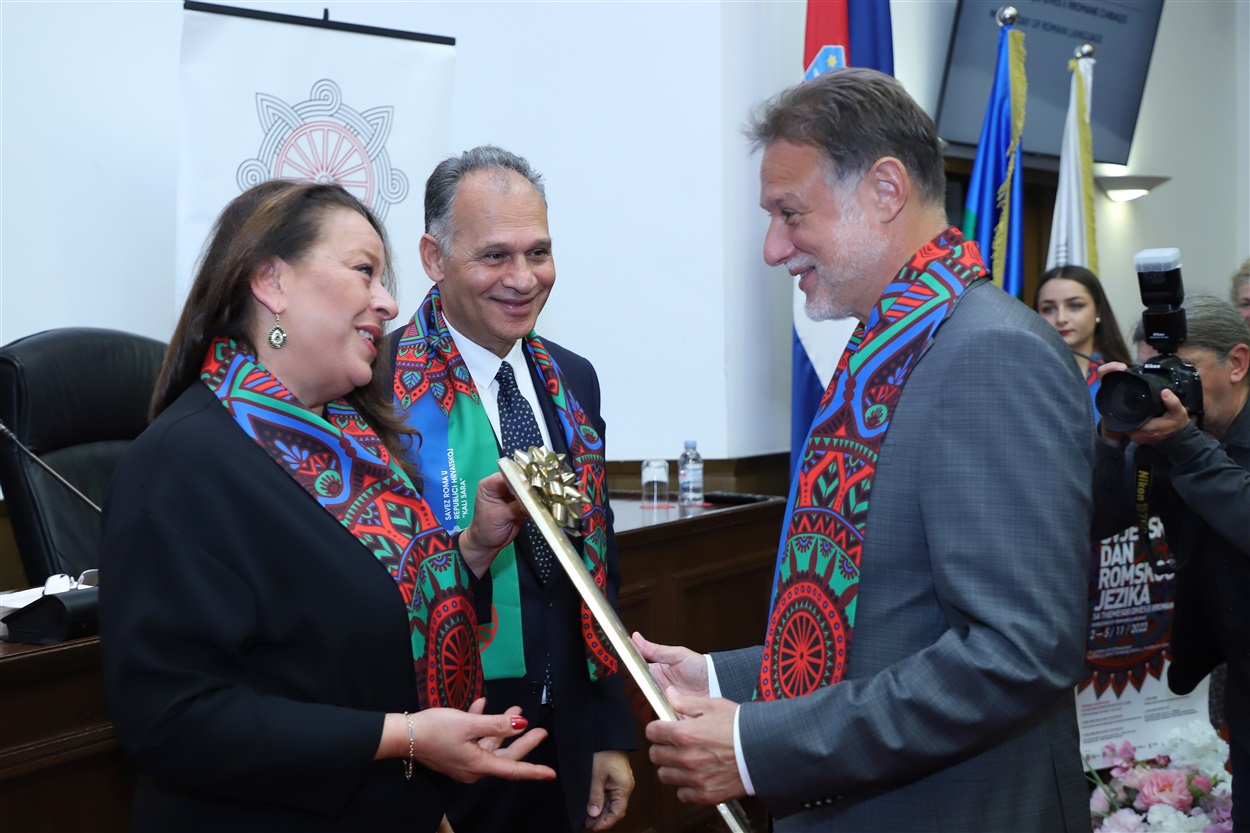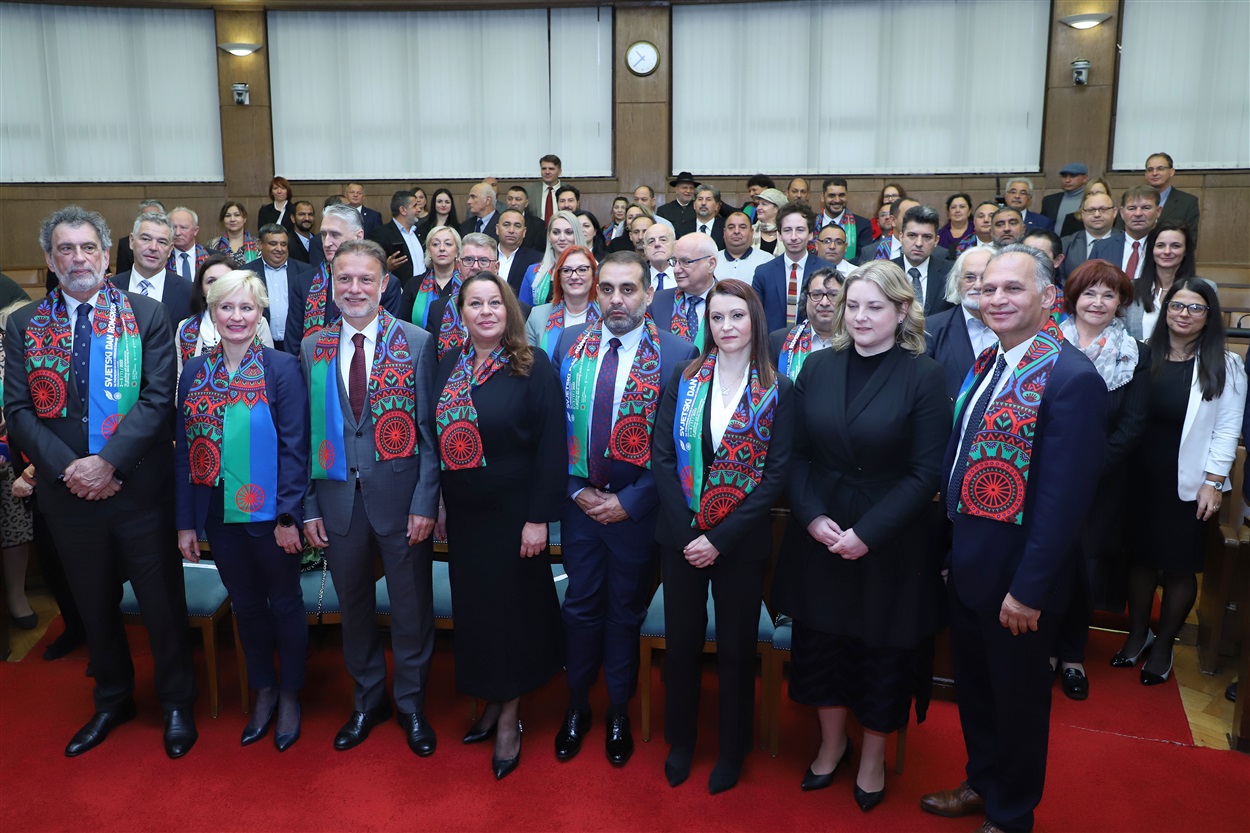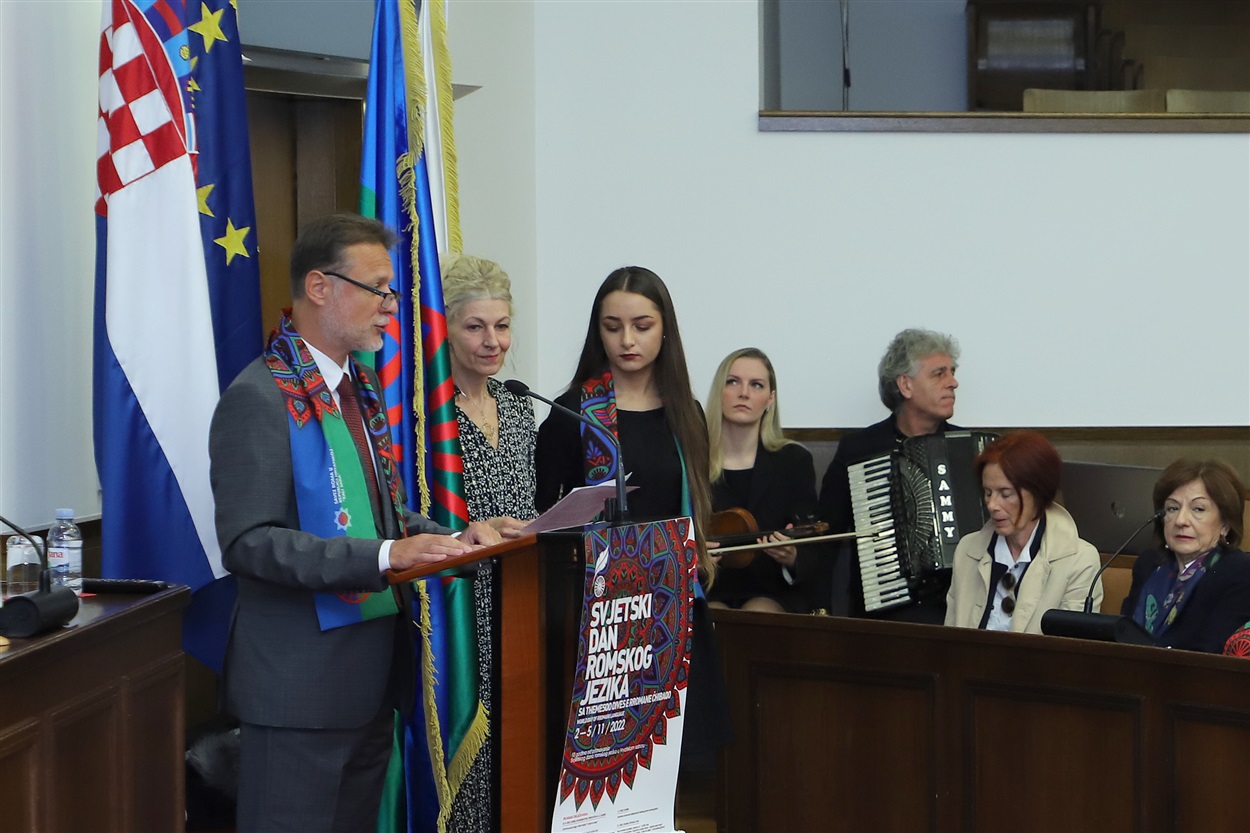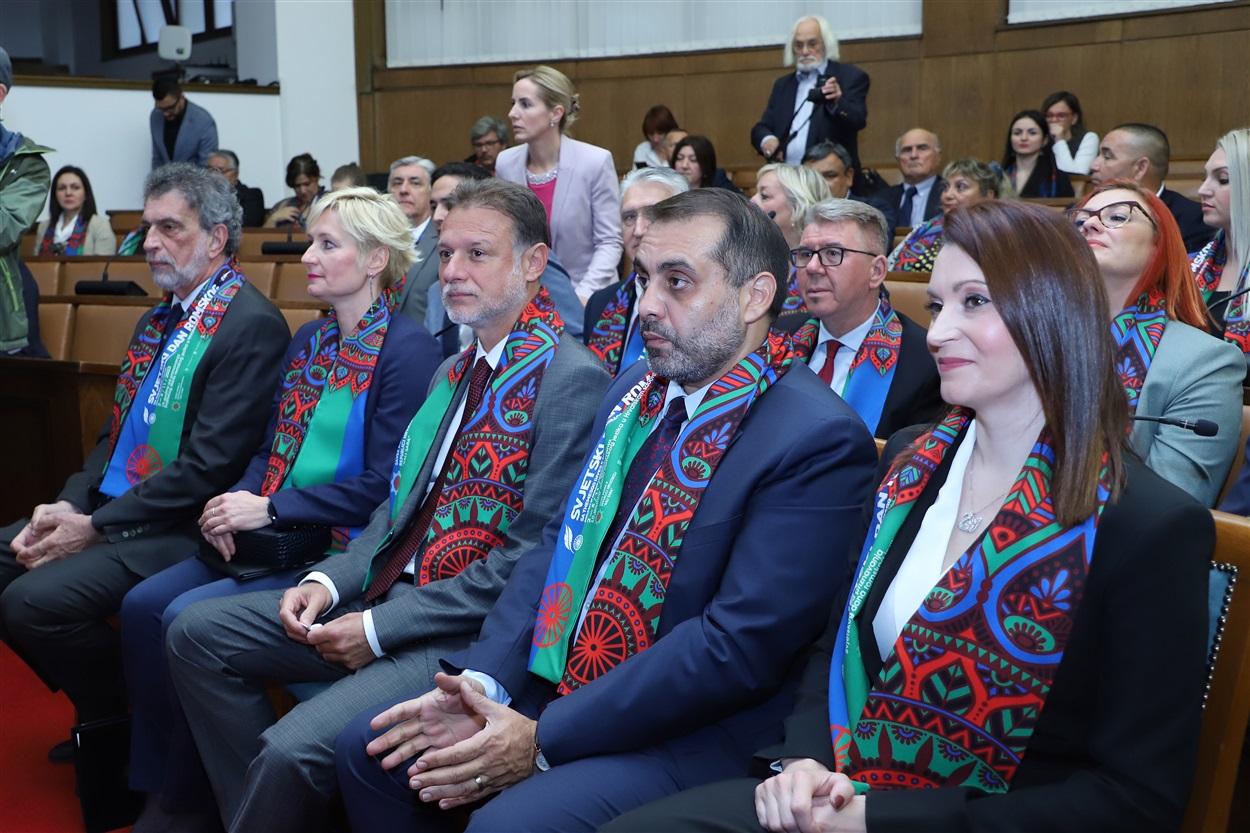
Zagreb - The Croatian Parliament on Friday marked the World Day of Romani Language, observed on 5 November, and on this occasion Speaker Gordan Jandroković was presented with a memorial scroll with Romani insignia, flag and anthem commemorating the 10th anniversary of the declaration of this day.
Jandroković said that 10 years ago the Croatian Parliament had supported the initiative to declare the World Day of Romani Language and was the first parliament in the world to do so. UNESCO recognised the initiative three years later and declared 5 November the World Day of Romani Language.
"As part of UNESCO's protected heritage, the Romani language continues to enrich our Croatian, European and world heritage. Language remains one of the main components of the identity of any nation. It enables us to preserve and pass on our own culture to the next generations, connecting us with our ancestors and descendants," Jandroković said.
He warned that the Romani still face many challenges, and that the solution partly lies in non-Romani people getting to know the language, culture and history of the Romani.
The ceremony marking the World Day of Romani Language was organised by the Kali Sara Association and MP Veljko Kajtazi, who represents the Romani community in the Croatian Parliament.
Science and Education Minister Radovan Fuchs highlighted the importance of education, with language as one of the key elements. "In order for the Romani in Croatia and elsewhere in the world to do this, they need their own language to pass on their experience, culture and customs to young generations. You have the Croatian government's full support in this," he said.
He recalled that the Romani language curriculum had been available since 2020 and expressed satisfaction with the progress made in the education of Romani and the number of them studying at universities.
Number of Romani university students has doubled in last 5 years
MP Kajtazi said that the number of Romani university students and the number of scholarships for them had doubled in the last five years.
He noted that the first Romani-Croatian and Croatian-Romani Dictionary had been published 14 years ago and that the Romani were the only ethnic minority in Croatia who had increased their numbers according to the latest census, while all other ethnic communities had shrunk, some by as much as 20 per cent.
Lifetime achievement awards were presented to Romani activist and writer Jožek Horvat from Slovenia and Nedžatin Kamberovski, a long-serving member of the Romani Council of Zagreb and founder of the first Romani cultural association in Zagreb.
A certificate of acknowledgement was presented to Minister for Regional Development and EU Funds Nataša Tramišak for her contribution to the integration of the Romani into the Croatian society and the implementation of the government's operational programme for the Romani ethnic minority.


